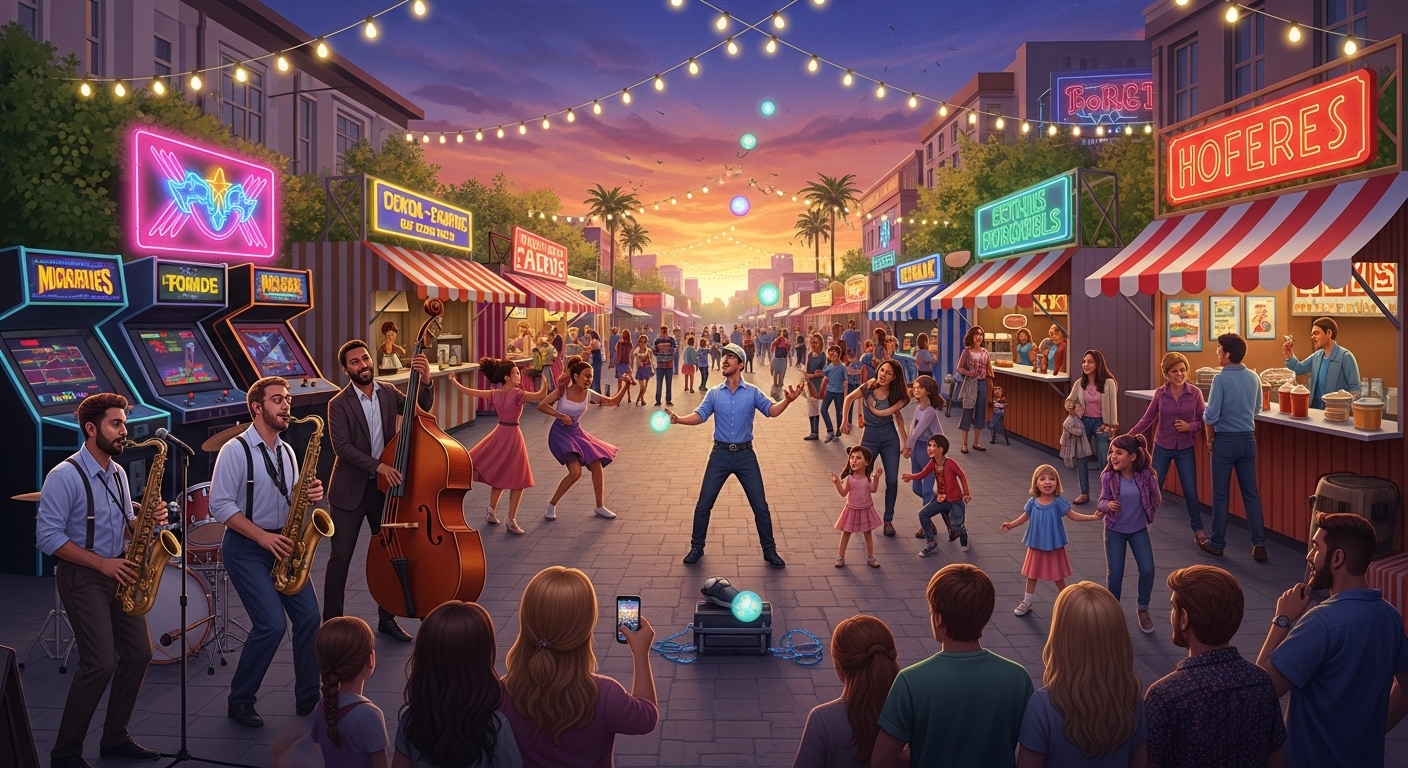Introduction: The Ever-Changing Landscape of Entertainment
Entertainment is woven into the fabric of human culture. It shapes societies, reflects values, and provides a necessary escape from the mundane. Throughout history, the ways in which people seek amusement and connection have evolved dramatically, from ancient storytelling and theatrical plays to the digital streaming platforms of today.
In this blog, we’ll explore the dynamic world of entertainment—how it has transformed over time, the role technology plays, its societal impact, and what the future holds for this essential human experience.
The Roots of Entertainment: A Historical Perspective
Long before cinema and video games, entertainment was grounded in communal experiences and storytelling. Oral traditions were the earliest forms, where myths, legends, and histories were shared around fires. These narratives fostered community bonds and preserved culture.
The advent of theater in ancient Greece brought a new form of entertainment that combined storytelling with performance, music, and visual spectacle. Drama, comedy, and tragedy became powerful tools to explore human emotion and societal issues. Similarly, in other civilizations, dance, ritual, and music served as both entertainment and spiritual practice.
As societies grew more complex, new forms emerged—literature, visual arts, and later, mechanical amusements such as fairs and circuses. Each era added layers, shaping entertainment into a multifaceted experience catering to different tastes and purposes.
The Golden Age of Cinema and the Rise of Mass Media
The late 19th and early 20th centuries marked a turning point with the invention of motion pictures. Cinema quickly evolved into a dominant form of entertainment, accessible to masses in urban centers and beyond. Silent films gave way to talkies, color, and eventually digital projection, with storytelling becoming richer and more immersive.
Parallel to cinema, radio and later television revolutionized how people consumed entertainment. Radio brought voices, music, and drama into homes, creating shared experiences across vast distances. Television added visual dimensions, making entertainment more immediate and pervasive.
This era also saw the birth of celebrity culture, with actors, musicians, and personalities becoming icons. Entertainment was no longer just a pastime but a defining element of popular culture, influencing fashion, politics, and social norms.
The Digital Revolution: Entertainment in the Information Age
The rise of the internet and digital technology fundamentally altered the entertainment landscape. Streaming services transformed how we access movies, music, and shows, breaking free from scheduled programming and physical media. Audiences gained control over what, when, and how they consume content.
Video games emerged as a dominant entertainment medium, blending storytelling, competition, and interactivity. Games evolved from simple pixelated forms to cinematic experiences with deep narratives and social engagement. The growth of esports further blurred the lines between gaming and entertainment spectacle.
Social media platforms created new avenues for content creation and consumption, enabling anyone to become a creator or influencer. This democratization shifted power from traditional studios and broadcasters to individuals and communities, fostering niche genres and global fanbases.
The Psychological and Social Importance of Entertainment
Entertainment serves vital psychological functions. It offers relaxation, stress relief, and emotional catharsis. By engaging with stories, music, and games, people explore identity, morality, and relationships in safe, imaginative spaces. Entertainment also fosters empathy by exposing audiences to diverse perspectives.
Socially, entertainment creates communities. Fans gather around shared interests, whether it’s a favorite TV series, band, or video game. Events like concerts, film festivals, and live performances generate collective joy and cultural dialogue. Even solitary entertainment often connects people through online discussions and fan content.
Moreover, entertainment can challenge societal norms and inspire change. Satire, drama, and documentaries shine light on injustices, provoke thought, and mobilize audiences around causes. It has the power to reflect and reshape cultural values.
The Business of Entertainment: Industry Dynamics and Trends
The entertainment industry is a vast, multifaceted economy involving production, distribution, marketing, and consumption. Studios, publishers, record labels, and streaming services compete and collaborate in a constantly shifting marketplace.
Revenue models have diversified beyond ticket sales and physical products to include subscriptions, advertising, sponsorships, merchandise, and live events. The rise of direct-to-consumer platforms has disrupted traditional intermediaries, altering power dynamics and creative control.
Technological innovation drives new business opportunities. Virtual reality experiences, augmented reality applications, and interactive content are emerging sectors. Data analytics and artificial intelligence help tailor recommendations and create personalized entertainment journeys.
Challenges Facing Modern Entertainment
Despite its growth, the entertainment world faces significant challenges. Content saturation makes discovery difficult, leading to fragmented audiences and fierce competition for attention. Intellectual property issues, piracy, and copyright enforcement remain ongoing battles.
Diversity and representation have become critical discussions. Historically marginalized voices are demanding more equitable inclusion in storytelling and industry leadership. The industry’s response affects cultural relevance and audience trust.
Mental health concerns arise from the addictive potential of some entertainment forms, particularly digital gaming and social media. Balancing engagement with well-being is a crucial challenge for creators and platforms alike.
Entertainment and Technology: The Future Horizon
Looking forward, entertainment will continue evolving alongside technological progress. Artificial intelligence may revolutionize content creation, enabling dynamic narratives that adapt to individual viewers in real-time. Virtual and augmented reality could provide fully immersive experiences, merging physical and digital worlds.
Blockchain technology might offer new models for ownership, royalties, and fan participation, fostering transparency and innovation. Interactive and social entertainment will expand, blending passive viewing with active engagement and community building.
The convergence of entertainment with education, health, and social causes will grow, creating hybrid experiences that inform, heal, and empower.
Conclusion: The Enduring Power of Entertainment
Entertainment remains an essential part of human life—a mirror reflecting our hopes, fears, dreams, and realities. It evolves with technology and society but always serves the fundamental human need for connection, joy, and meaning.
As we navigate the future, embracing innovation while honoring storytelling’s core will ensure entertainment continues to enrich lives, inspire creativity, and build bridges across cultures. The story of entertainment is far from over; it is an ever-unfolding journey inviting everyone to participate.



